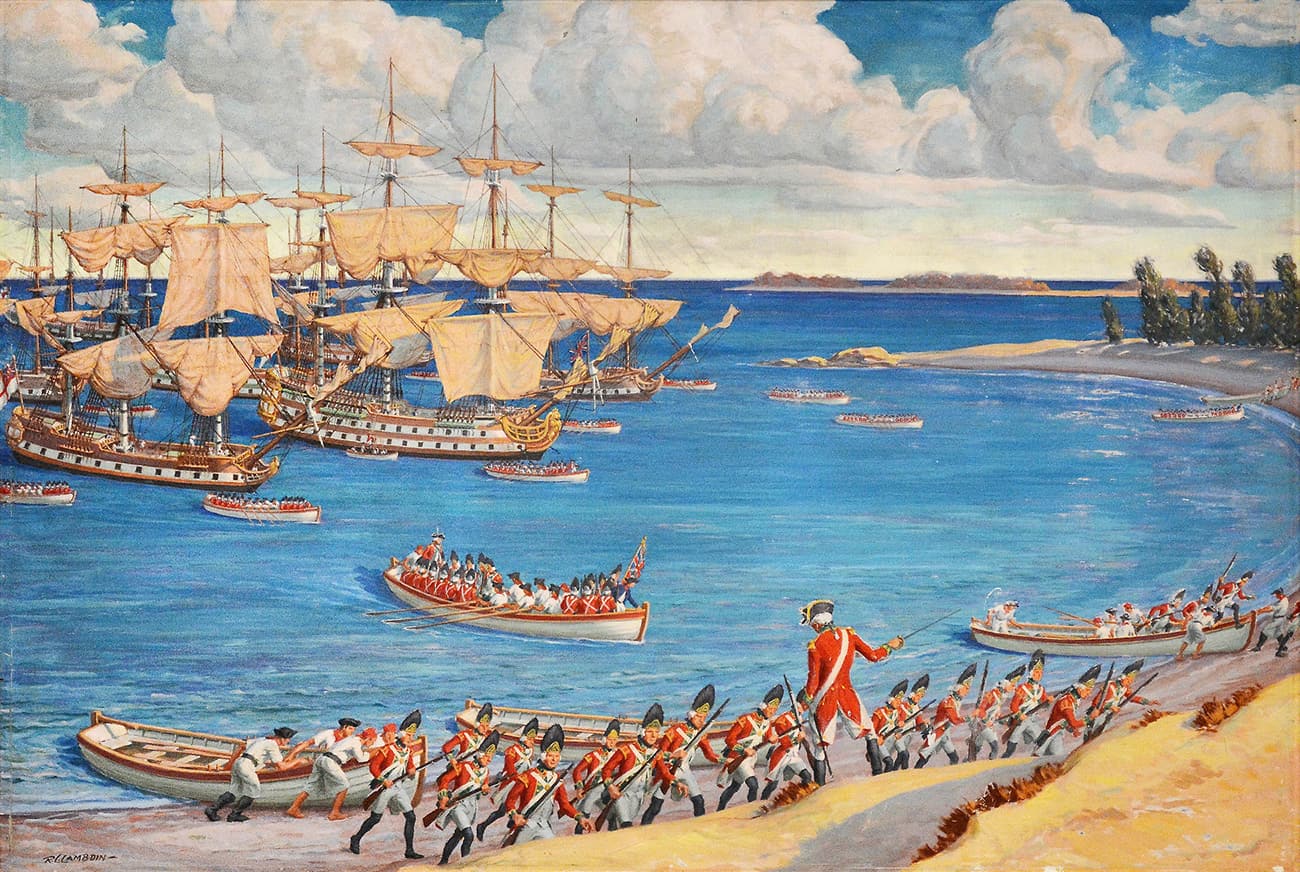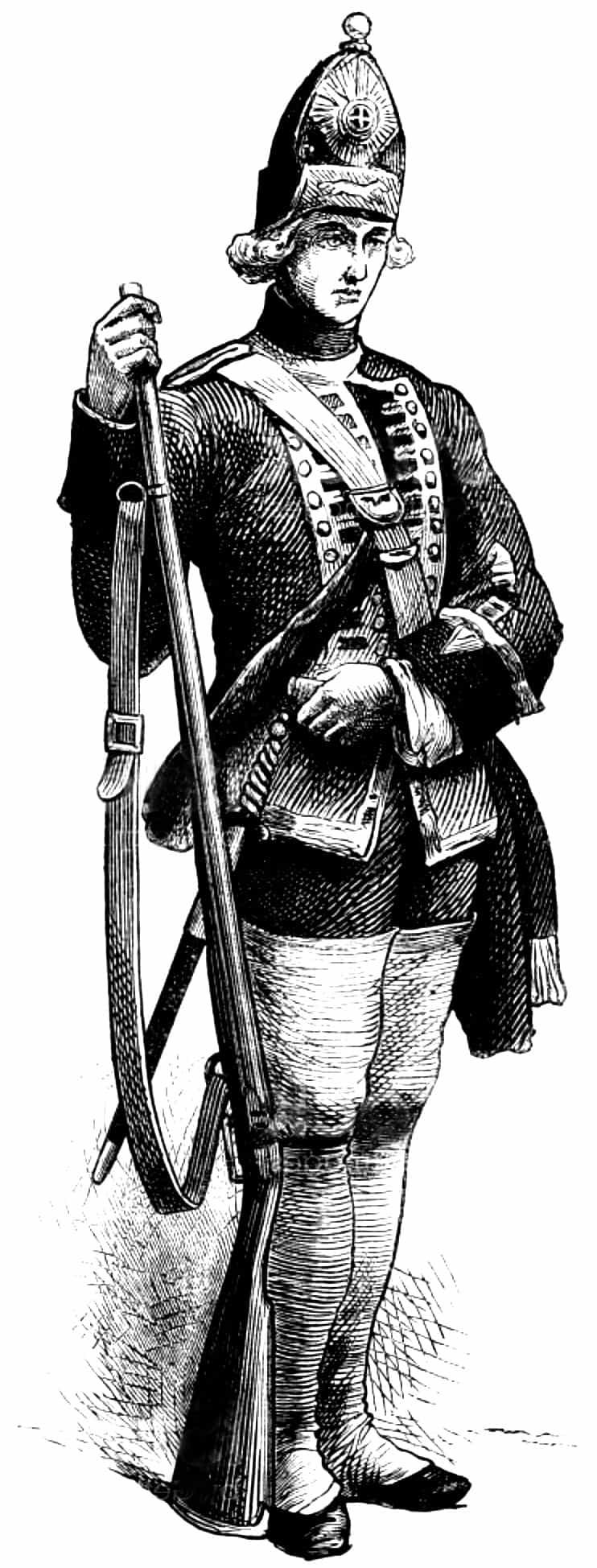
Military Report of the British

General William Tryon’s Official Account of the Burning of Norwalk, published in the London Gazette
“Wanting some supplies, we crossed the Sound to Huntingdon, and there continued till the 11th, and repassing that day, anchored five miles from the bay of Norwalk. The sun being nearly set before the 54th, the Landgrave’s regiment, and the Jagers were in the boats, it was near nine in the evening when I landed them in the Cow pasture, a peninsula on the east side of the harbor, within a mile and a half of the bridge, which formed the communication between the east and west parts of the village, nearly equally divided by a salt creek.
The king’s American regiment being unable to join us before three next morning, we lay that night on our arms. In our march at the first dawn of the day, the 54th led the column, and soon fell in with the rebel outpost and driving the enemy with great alacrity and spirit, dispossessed them of Drummond Hill, and the heights at that end of the village, east and commanding the bridge.
It being now but 4 o’clock in the morning, and the rebels having taken post within random cannon shot upon the hills on the north, I resolved to halt until the second division, landed at the Old Wells, had advanced and formed the junction.
Gen. Garth’s division passed the bridge by 9, and at my desire proceeded to the north end of the village, from whence, especially from the houses, there had been a fire for five hours, upon our advance guards. The fuziliers, supported by the light infantry of the guards, began the attack, and soon cleared the quarters, pushing the main body and 100 cavalry from the northern heights, and taking one piece of their cannon.
After many salt pans were destroyed, whale boats carried on board the fleet, and the magazines stores, and vessels set in flames, with the greater part of the dwelling houses, the advanced crops were drawn back, and the troops retired in two columns to the place of our first debarkation, and, unassaulted, took ship and returned to Huntingdon Bay.”
Tryon reported that the loss of British forces was 20 killed, 96 wounded and 32 missing




